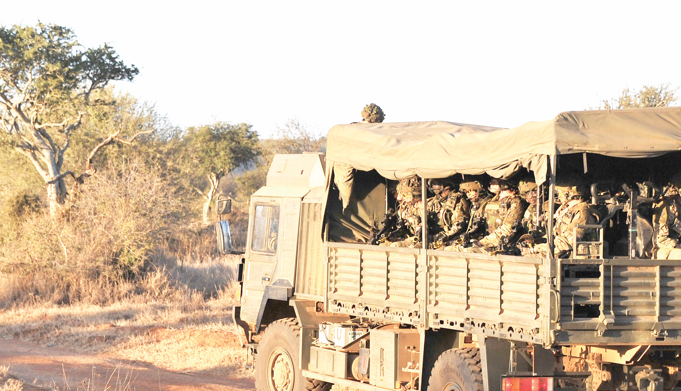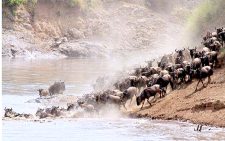Local trials for BATUK officers crimes while training in Kenya

Members of the British Army Training Unit Kenya (BATUK) who commit crime while on training mission in the country will henceforth be tried locally under Kenyan laws.
This is after the National Assembly on Wednesday evening adopted a report by the Committee on Defence, Intelligence and Foreign Relations amending the Defence Cooperation Agreement between Kenya and the United Kingdom.
While giving a nod to the report, the MPs said UK soldiers on training in Kenya must be held accountable for all their actions.
“The agreement with the Government of the Republic of Kenya and the Government of the United Kingdom of Great Britain and Northern Ireland provided for joint training and as such, activities of the Foreign Forces will not be in isolation,” the report reads in part.
The lawmakers recommended amendments to Article 6 (5) of the cooperation agreement to include murder as one of the offences under the jurisdiction of the host nation, which is Kenya. The present agreement was signed on July 27, 2021, to replace the previous one signed in 2015.
Infantry tactics
The UK government has training exercises on counter- Improvised Explosive Devices ( IED), people and vehicle searching and some infantry tactics. They also have the UK infrastructure projects at KDF’s school of infantry which includes an urban village, a Forward Operating Base (FOB) and an assault course which prepares KDF for deployment to Somalia.
In essence, visiting members of the UK troops who commit the offence on Kenyan soil would be prosecuted under the Kenyan law unlike in the current circumstances where Kenya has to seek authority from the UK to have them tried from there.
The MPs also unanimously agreed to amend Article 23 of the agreement, which obligates visiting forces to respect the traditions and culture of local communities, to include Corporate Social Responsibility in the agreement.
Faulted BATUK
During the debate on the Report on Consideration of the Agreement between the Government of Kenya and the Government of Great Britain, MPs faulted Batuk the for failing to adhere to Kenya’s laws and obligations under international law with respect to the preservation of the environment, pursuant to Article 8 of the agreement.
“The training by Batuk had failed to adhere to Kenya’s laws and obligations under international law with respect to the preservation of the environment pursuant to Article 8 of the Agreement,” the report reads in part.
Committee chairman Nelson Koech said the ratification of the Defence Cooperation Agreement would greatly enhance intelligence sharing to tackle security challenges facing the member countries given the security threats facing the Horn of Africa region.
Further, Koech said Kenya stands to benefit immensely from the UK’s advanced defence capabilities, size and nature of its economy, geo-political position and its large coastline.
The Committee was propelled into taking up the ratification of the agreement following a petition by Laikipia county where the BATUK is based, raising concerns over the loopholes in the pact.
The county government, while citing failure by the previous Parliaments, particularly the 12th Parliament to ratify the agreement, accused Batuk of taking advantage of the loopholes to commit several atrocities against Kenyans and the environment. The county cited the Lolldaiga Hills conservancy fire incident, the murder of Agnes Wanjiru by BATUK soldiers, and the blast injury of a 10-year-old Lisoka Lesauyan as among the reasons the agreement should not be renewed.
“The committee noted that Article 6(5) provides for various offences which cannot be considered as arising out of official duty and are therefore triable by the host nation. However, murder was not considered as one of the offences, thus allowing cases similar to Agnes Wanjiru’s to occur in the future,” reads the report.
In 2021, then Director of Criminal Investigations George Kinoti told MPs Wanjiru had a good time with the British soldier and they were seen dancing at the bar that fateful night. Wanjiru and the soldier, who was in uniform, were later seen heading towards the guest rooms. A report from the DCI tabled in Parliament indicated that part of Wanjiru’s body was found submerged in a septic tank, with the legs floating on the sewerage.











